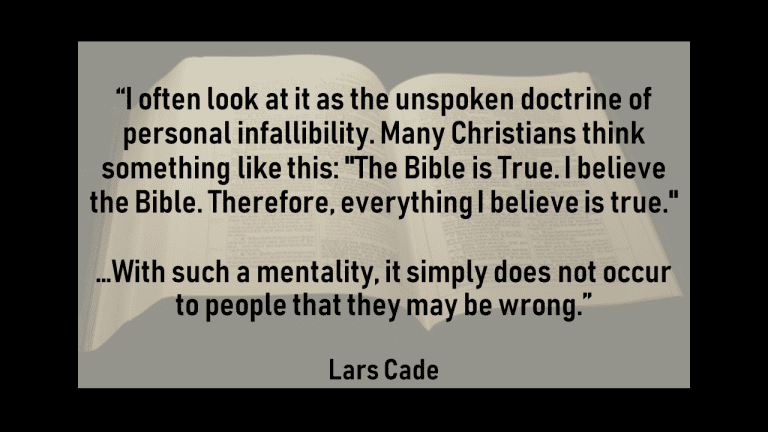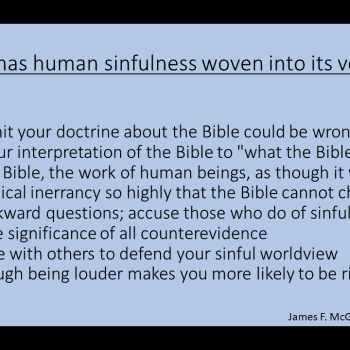
This statement by a Facebook friend seemed worth turning into a meme. I did so some time ago, but unfortunately it took me longer than it should have to share the meme on my blog. Here is the quote:
I often look at it as the unspoken doctrine of personal infallibility. Many Christians think something like this: “The Bible is True. I believe the Bible. Therefore, everything I believe is true.” This also applies to the morality of actions they may take or motives they may have (see: defending the separation of families by quoting Romans 13). With such a mentality, it simply does not occur to people that they may be wrong.
Lars Cade
You can see from what it says the contemporary issue that sparked the statement. But it has a much broader application, which is what made it seem particularly memeworthy. It certainly seems true to my own experience. Even while claiming “it isn’t me, it’s God,” I did precisely what Lars Cade says in practice, although it is only with hindsight and after significant introspection and self-examination that I recognize these things.
Is this your experience of what is at work in fundamentalism – that the reason for being concerned to defend the authority of the Bible is ultimately to defend the rightness of one’s own views and those of one’s community? To be sure, the claim is always that it is one’s own beliefs that are being conformed to the Bible rather than vice versa. But that only works because, despite all the praise heaped on the Bible and its importance, the average conservative Christian does not know the Bible well enough to appreciate its diversity, reads it in a translation that hides discrepancies and differences from them, and knows only (or at least knows best) those parts that can be interpreted as supporting their stance.
“The Bible is True. I believe the Bible. Therefore, everything I believe is true.” Does that sum this viewpoint up well?

















